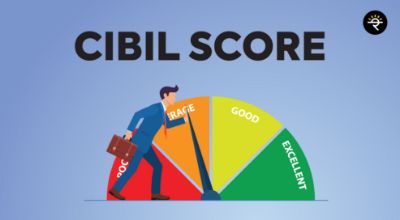
Imagine this... It’s a beautiful day. Your salary just got credited and you decide to treat yourself a little. You go on Amazon to buy some clothes. After hours of scrolling, you finally find a T-shirt you like BUT!!! The customer rating for that T-shirt is very low. Would you still buy that T-shirt? Hold that thought…Just like every product available on Amazon has a rating, we all have a rating based on our credit history, called Credit Score. So now tell me, would you, as a bank, give a loan to someone with a Low Credit Score? The answer to both the questions is a big fat NO, A low score is a clear red flag, isn’t it? Now that you have got the crux of this, let’s understand what CIBIL score is and how you can improve it.
What is CIBIL?
What is CIBIL Score?
To put it simply, our CIBIL score is like a rating given to us by CIBIL based on our credit histories such as borrowing and repayment. Banks or lending institutions use this score to understand our creditworthiness before approving any loan to minimize default risk. This score ranges from 300 to 900. The higher the score higher is your chance of getting the loan and vice-versa. If you have a good CIBIL score you may get a lower rate on a personal loan, credit cards, and lower insurance premium. However, too many loans, untimely repayment, and high utilization of credit limits can poorly impact your credit score. If you have never taken any loan your CIBIL score would be -1.
How can you check your CIBIL score?
Ways to improve/maintain your CIBIL Score
- Timely Repayment
Be it your credit card bills or EMIs, making timely payment of your dues is one of the important factors in improving your CIBIL score. If you miss your repayment deadlines, you are charged interest on the interest you are already paying. Ultimately, this reflects poor creditworthiness and drags down your CIBIL score.
- Check your Credit Report
Monitoring your Credit Report will help you realize where you are spending more and what caused your score to slip. If there are any errors in your report because of incorrect information or delay in updating your report, you can put up an enquiry with CIBIL, and get it corrected. This will get your score right back on track.
- Pay attention to your Credit Mix
You must have a good credit-folio including secured and unsecured loans. Secured loans include Home loans, car loans, etc. whereas Unsecured loans include personal loans, credit cards, etc. A good balance between the two indicates better credit management on your part. However, if a person highly relies on unsecured loans then it is not favourable.
- Credit Utilization
Credit utilization of above 30% on your credit card can adversely impact your CIBIL score. Just because you have a certain credit limit does not mean you use it all at once. On the other hand, not using your credit card at all will also affect your score poorly. The only solution to this is to keep a track of your spending which will help in limiting your credit utilization. If you are not using any of your credit cards it is best to cancel them.
- Say no to Multiple loan application
Every time you apply for a loan; the bank initiates a hard enquiry on your credit profile to understand the default risk involved. This hard enquiry is reflected on your credit report for two years affecting your CIBIL score. So, if you apply for multiple loans at the same time, it will open several hard enquiries on your account which will damage your score. Additionally, if your loan application gets rejected, it could cause more harm to your CIBIL score. So, next time you apply for a loan or credit card keep this in mind.
- Avoid closing Old Debt Accounts
By now you must have understood that the CIBIL score is all about your past credit habits. Therefore, it is advisable to keep your old loan accounts open even after you have repaid them. If you have had a good credit record for past loans then it will contribute positively to your CIBIL scores.


